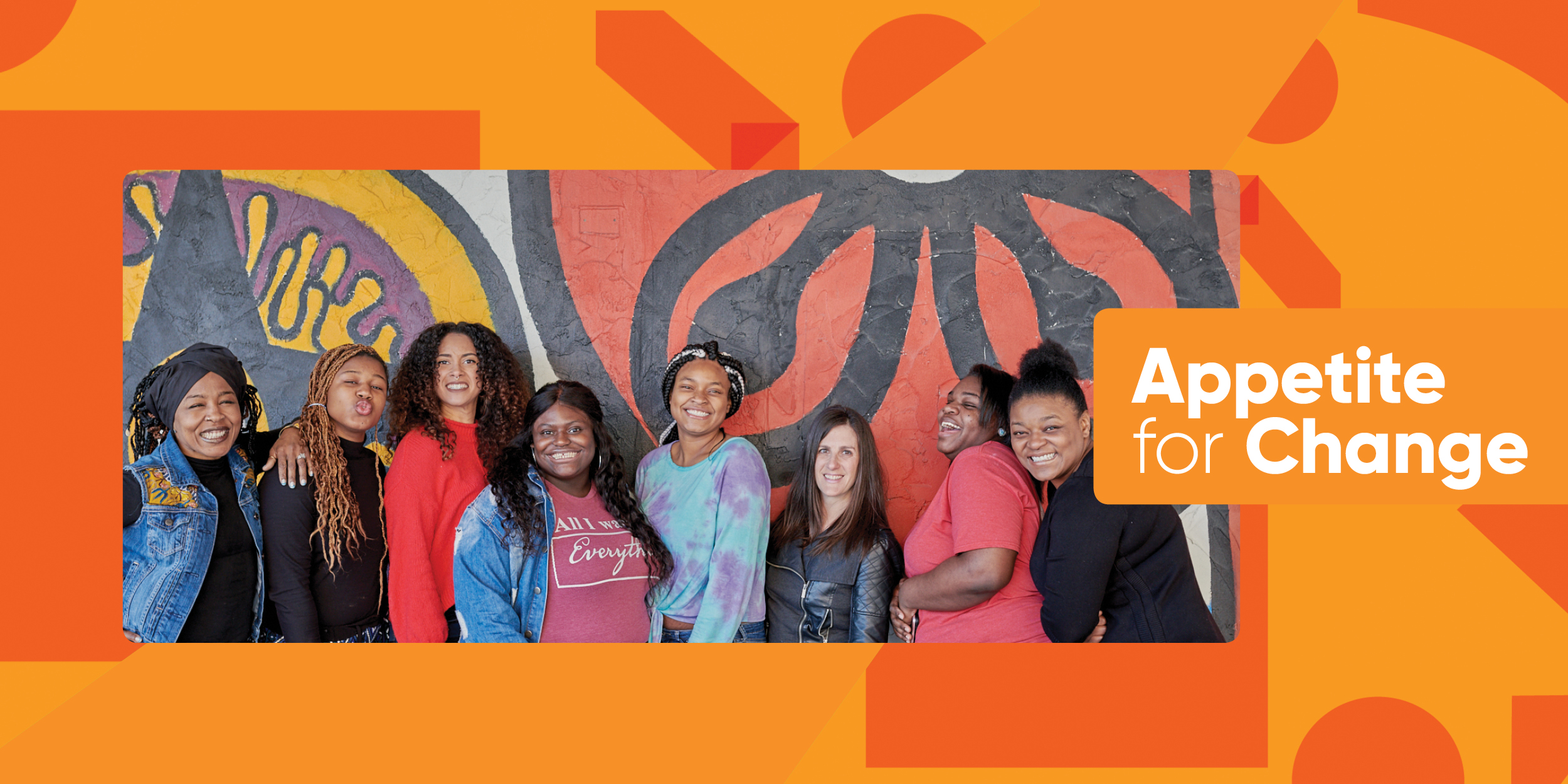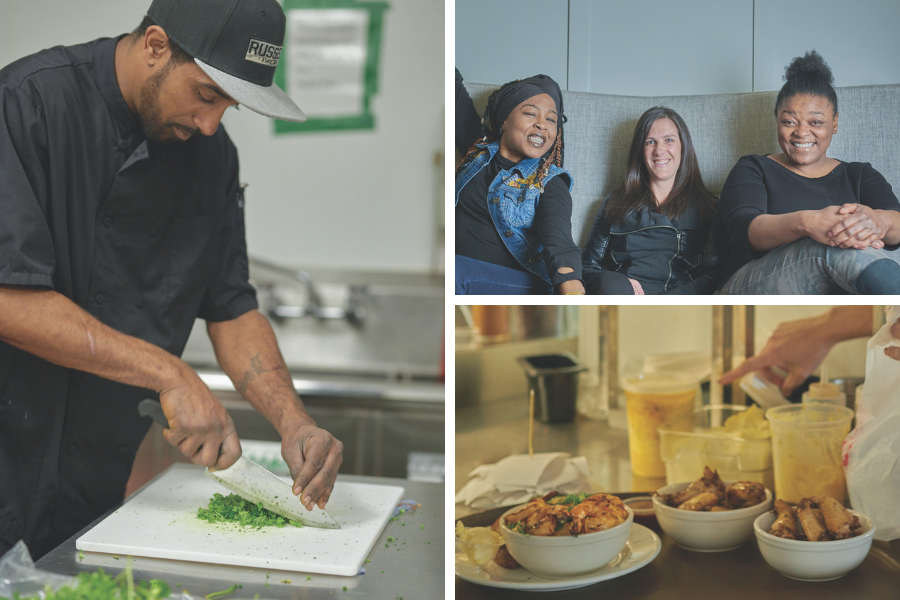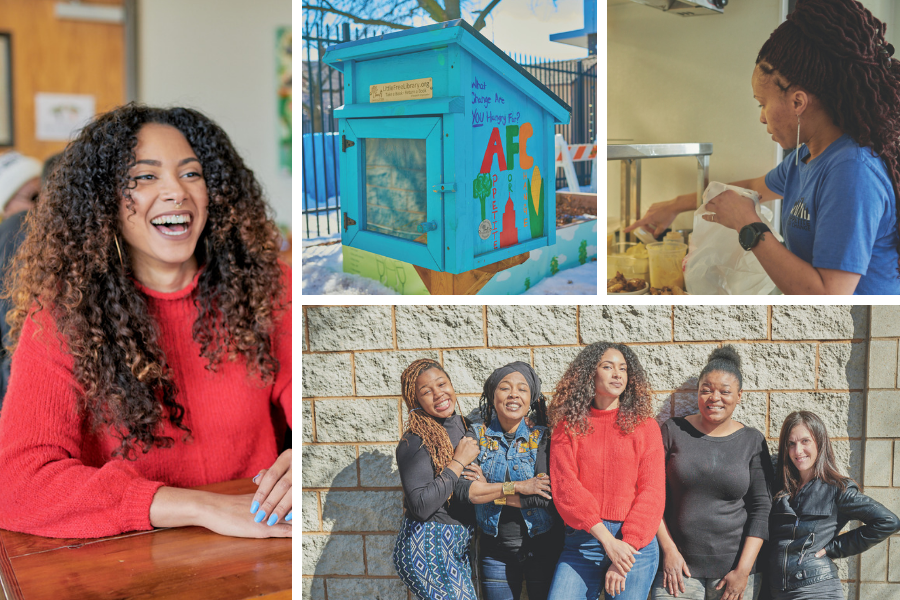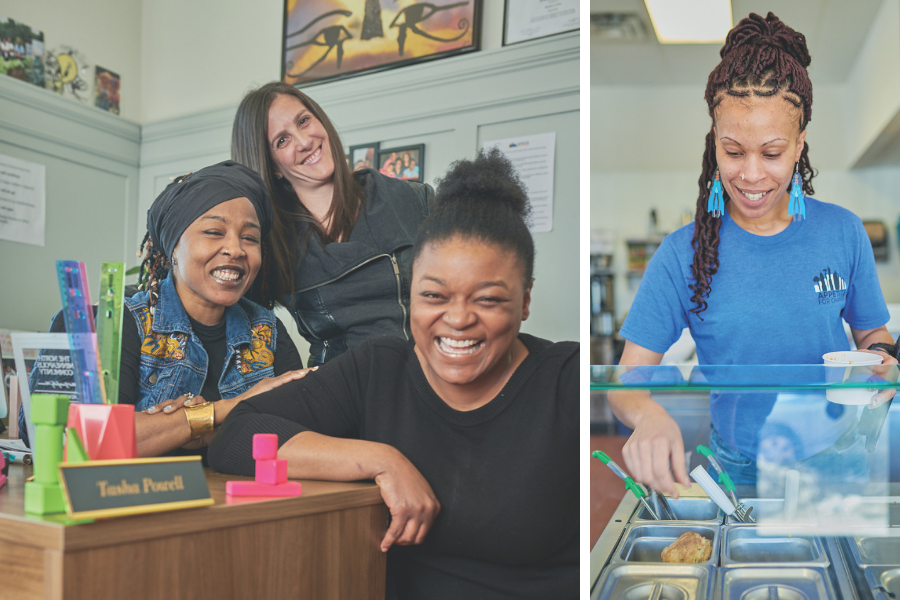
A featured story selected as part of the “Social Enterprise IMPACT Showcase” hosted by the Social Enterprise Alliance-Twin Cities. Read more about the full Social Impact List.

“What just happened is a reason.”
Bill Cottman is an 18-year North Minneapolis resident who has adopted Breaking Bread by Appetite for Change as his “third place”.
“I used to say I could get Southern Comfort on Plymouth Avenue on a Saturday morning, but I couldn’t get a cup of coffee.”
What “just happened” is a bustling Friday afternoon at the cafe, where everyone seems to know each other’s name, and conversations get interrupted by other side conversations, and those flow into new ones, and a cup of coffee can easily turn into a three-hour lunch over biscuits and gravy or vegan portobello cakes.
And that’s one reason why Appetite for Change (AFC) is a benefit to the North Minneapolis community.
The 501c3 non-profit organization is supported by earned revenue from several internal programs, along with more traditional grant and donor support.
What makes AFC unique is its robust visibility in the neighborhood:
The cafe, its Kindred Kitchen food business incubator and commercial kitchen; West Broadway Farmers Market; and other programming and partnerships that have grown to make AFC a vital force for food justice in North Minneapolis.

“This cafe is practically at the geographic center of 55411,” says Bill over a spread of cheese eggs, bacon, toast with strawberry jam, and coffee with room for cream.
Breaking Bread is the only full-service restaurant on the West Broadway corridor, though employees of AFC reject the use of the word “food desert” for their community, a term defined as an urban area in which it is difficult to buy affordable or good-quality fresh food.
Such characterizations by the dominant culture only exacerbate the problem of food access, says Miah Ulysse, AFC Policy Manager. “Besides, deserts are high-functioning ecosystems,” she says, by way of illustrating how she and her colleagues strive to define their own experience, and help define what it means to live and work on the Northside.
“Appetite for Change is different because three women decided to come to the community and ask the community what they wanted,” says Miah.

Those three women — Michelle Horovitz, Tasha Powell, and Princess Titus are the founders of the organization whose mission is to “Use food as a tool to build health, wealth, and social change in North Minneapolis.”
This social enterprise puts food at the center of its mission which begins with food for a reason.
Michelle always had a strong affinity for the food world, working her way through college in restaurants. Her dream was to become a chef, but her family encouraged her to take a more practical career path, into law. Still, the “stark differences” in food access nagged at her. As a public defender, she watched as client’s three- or four-year-old kids ate Cheetos and Mountain Dew for breakfast, and knew she wanted to create change through food.
Most of the leadership team at AFC and Breaking Bread are African American, and many hires are directly out of the Northside community.
Currently in a growth phase, a goal has been set to have earned revenue be at least fifty percent of their financial sustainability by 2021.
“Restaurants are always pushing uphill, but we’re doing it with one hand tied behind our back,” says Michelle. The cafe’s prices are intentionally lowered to make the food more accessible, and much of their workforce is also doing job training. These intentional challenges are part of the overall mission. And those challenges stretch boundaries of how a healthy nonprofit model can work.

But AFC is playing the long game, one of empowerment and equity. Being an organization for black people by black people is one of its major superpowers.
“We’re noticeable because we’re mostly people of color,” says Shaunté Douglas, office administrator for AFC.
“We show a certain amount of power. It does us a lot of good to be so beautiful and black.”
“I constantly feel like I’m in a Beyonce Formation video when I’m at work,” says Miah.
Adamantly resisting white supremacy and its accompanying stereotypes, language, and systems is a constant conversation at work, say both women. And, they say, therein lies the real victory of AFC.
“It’s simpler than it looks,” says Miah. “[Those in power] don’t want to concede that if you give the community its power, that’s the secret sauce. Let the community take hold.”

Written by Mecca Bos & Photography by Tyson Crockett. Produced by Pollen Studio.